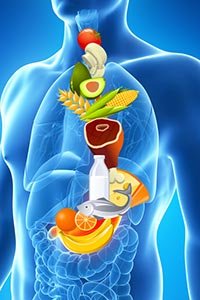The Role of Diet in Chronic Disease Management and Prevention
Chronic Illness and Nutrition: The Unspoken LinkOne of the main causes of the rise in chronic diseases including obesity, diabetes, and heart disease is poor nutrition. Let us examine how the food you consume can either contribute to or prevent disease.

How Illness Is Caused by Poor Nutrition
A diet heavy in processed foods, sweets, and bad fats impairs immunity, messes with metabolism, and speeds up the course of illness.
Common Illnesses Associated with Nutrition Obesity: Getting too many calories and not exercising can lead to weight gain, which raises the chance of developing various illnesses. Type 2 Diabetes: Consuming a lot of sugar causes insulin resistance, however diets high in fiber can help control blood sugar levels. Heart Disease: While nutritious diets can protect the heart, processed foods that are high in bad fats and cholesterol can damage it. Alzheimer's Disease: While omega-3 fatty acids and antioxidants may promote brain health, poor diet may hasten cognitive deterioration.
The Benefits of a Balanced Diet
Consuming foods high in nutrients promotes general health, wards off illness, and enhances life quality. Healthy eating supports: ✔ Boosts immunity ✔ Hold onto a healthy weight ✔ Encourage brain and heart function✔ Lower the risk of illness and inflammation
Vital Nutrients for Good Health
You can improve your eating habits by being aware of the functions of important nutrients.
The difference between macro and micronutrients
The macronutrients—fats, proteins, and carbohydrates—support bodily processes and give off energy. Micronutrients: Minerals and vitamins improve bone health, immunity, and metabolism.
The Role of Nutrients in Preventing Disease
Fish, flaxseeds, and walnuts are good sources of omega-3 fatty acids, which lower inflammation and promote heart health. Fiber and Diabetes Management: Vegetables and whole grains help control blood sugar levels. Potassium and Blood Pressure: Avocados, spinach, and bananas all aid in the management of high blood pressure. Calcium & Bone Health: Healthy bones are supported by dairy, vegetables, and fortified meals. Magnesium and Migraines: Dark chocolate, nuts, and seeds may help lessen the incidence of migraines.
Easy Nutrition Techniques
In the management and prevention of chronic illnesses, minor dietary adjustments can have a significant impact: Consume foods high in omega-3 fatty acids, whole grains, and healthy fats; stay away from trans fats for heart health. To manage blood sugar, eat low-glycemic, high-fiber meals and watch portion sizes. Increase your intake of calcium and vitamin D by eating more dairy, vegetables, and supplements for strong bones.Consume foods high in probiotics and vibrant fruits and vegetables to strengthen your immune system. Anti-inflammatory foods such as leafy greens, fatty salmon, and berries are important for reducing inflammation.
Take Control of Your Health
Chronic disease management and prevention are significantly influenced by your diet. You can improve your health and reduce your risk of disease by adopting small, thoughtful changes.
What's Your Reaction?




















